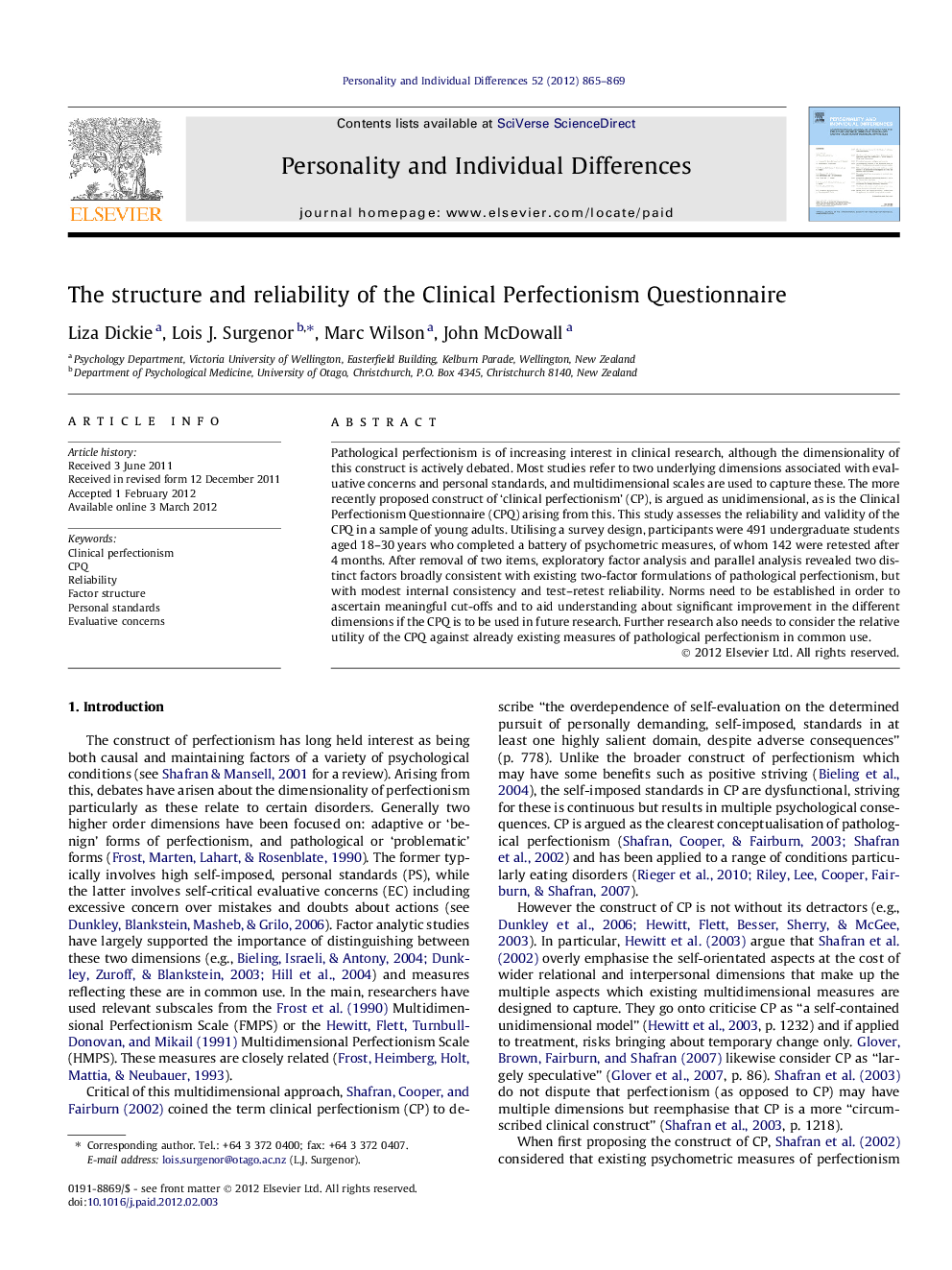| Article ID | Journal | Published Year | Pages | File Type |
|---|---|---|---|---|
| 891399 | Personality and Individual Differences | 2012 | 5 Pages |
Pathological perfectionism is of increasing interest in clinical research, although the dimensionality of this construct is actively debated. Most studies refer to two underlying dimensions associated with evaluative concerns and personal standards, and multidimensional scales are used to capture these. The more recently proposed construct of ‘clinical perfectionism’ (CP), is argued as unidimensional, as is the Clinical Perfectionism Questionnaire (CPQ) arising from this. This study assesses the reliability and validity of the CPQ in a sample of young adults. Utilising a survey design, participants were 491 undergraduate students aged 18–30 years who completed a battery of psychometric measures, of whom 142 were retested after 4 months. After removal of two items, exploratory factor analysis and parallel analysis revealed two distinct factors broadly consistent with existing two-factor formulations of pathological perfectionism, but with modest internal consistency and test–retest reliability. Norms need to be established in order to ascertain meaningful cut-offs and to aid understanding about significant improvement in the different dimensions if the CPQ is to be used in future research. Further research also needs to consider the relative utility of the CPQ against already existing measures of pathological perfectionism in common use.
► We report psychometric properties of the Clinical Perfectionism Questionnaire (CPQ). ► The modified 10-item CPQ has two dimensions. ► Dimensions are consistent with evaluative concerns and personal standards perfectionism. ► Future research should establish the merits of the CPQ against existing measures.
